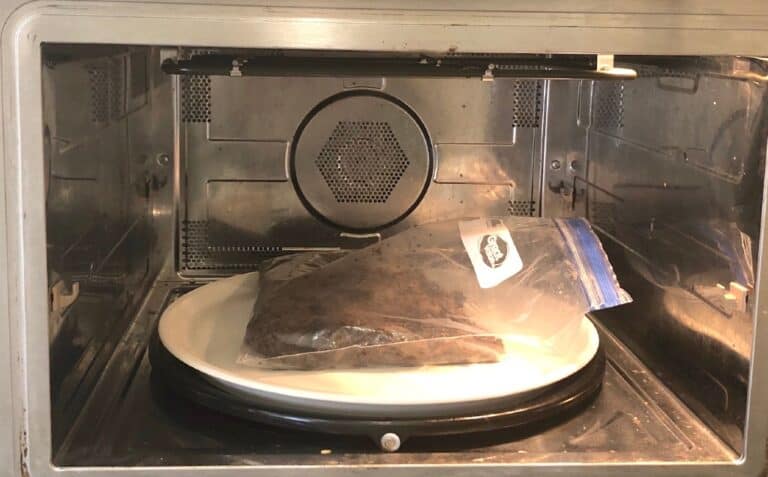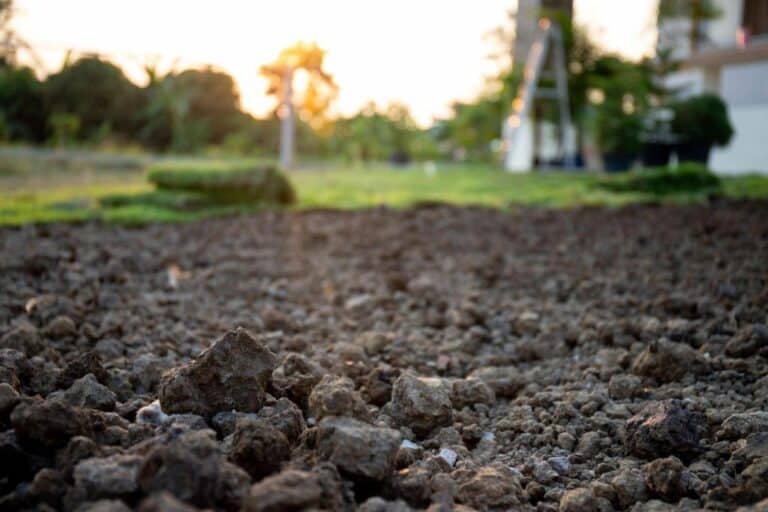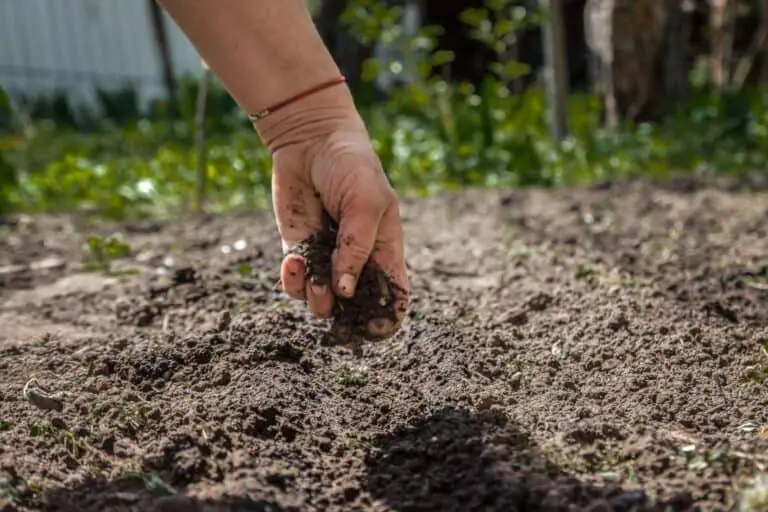Mixing Cow Manure With Soil: Best Ratio and How to Do It?
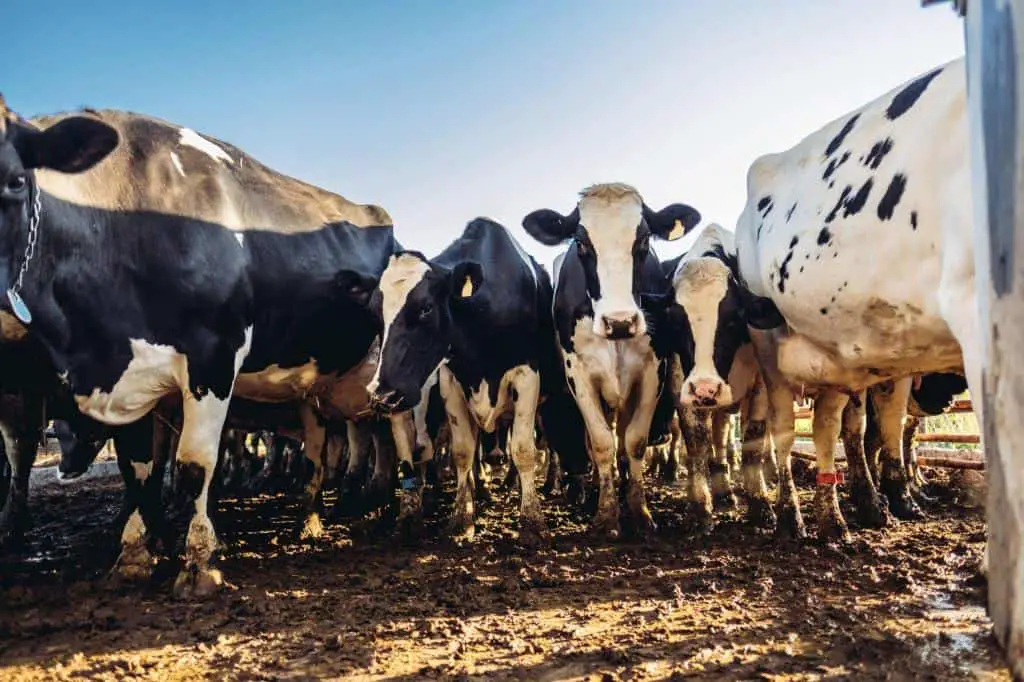
Gardening, for many, is a soothing endeavor—a chance to nurture the earth and watch life bloom. Yet, for all the green thumbs out there, there’s a perennial question: How can we coax the best from our soil? Enter cow manure, a natural wonder that can elevate your gardening game to a whole new level.
In this article, we’re embarking on a journey to demystify the art of mixing cow manure with soil. The goal? To unlock the secrets of achieving the best soil-cow manure ratio and to guide you through the process with simplicity and clarity.
Whether you’re a gardening veteran or a novice with a newfound love for all things green, we’re about to explore the science and magic of soil enhancement, making it easy for you to nurture plants that thrive, blossom, and bear fruits like never before.
It’s time to unlock the potential of your garden, creating a botanical symphony that will have you proudly conducting the orchestra of nature in your own backyard. So, let’s dig in and discover the secret to garden success!
Why Mix Cow Manure with Soil?
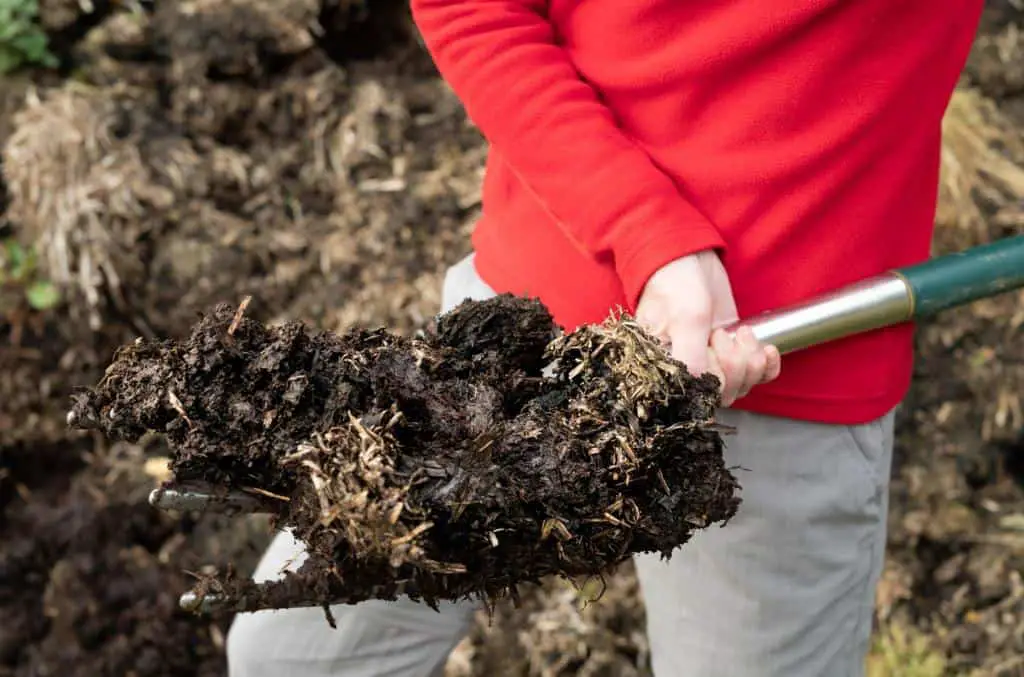
Before we dive into the nitty-gritty details, let’s understand why mixing cow manure with soil is a fantastic idea for your gardening or farming endeavors. Cow manure is a rich source of essential nutrients, making it an ideal soil conditioner. Here are some compelling reasons to incorporate cow dung into your soil:
- Nutrient-Rich Content: Cow manure is loaded with vital nutrients such as nitrogen, phosphorus, and potassium (NPK), which are essential for plant growth. These nutrients are present in a balanced ratio, promoting healthy and robust plants.
- Organic Matter: Cow dung is an excellent source of organic matter, which improves soil structure and moisture retention. It also encourages the growth of beneficial microorganisms that enhance soil health.
- pH Balance: It helps maintain the pH balance of your soil, ensuring that it remains within the optimal range for most plants.
- Weed Suppression: When mixed with soil, cow manure can act as a natural weed suppressant, reducing the need for harmful chemical herbicides.
- Cost-Effective: Cow dung is readily available on many farms, making it a cost-effective alternative to commercial fertilizers.
Finding the Right Ratio
While cow manure is undoubtedly beneficial for your soil, it’s essential to strike the right balance. Using too much or too little can lead to problems. Here’s a guideline to help you find the perfect ratio:
The 1:5 Rule
A widely recommended ratio for mixing cow manure with soil is the 1:5 rule. This means that for every part of cow manure, you should mix it with five parts of soil. This ratio provides a balanced and nutrient-rich mixture without overwhelming your plants with excessive nutrients.
Here’s how you can apply the 1:5 rule practically:
- Measure Your Space: Determine the area you want to amend with cow manure and soil. For example, if you’re working in a 10-square-foot garden bed, calculate the volume accordingly.
- Collect Cow Manure: Gather the cow manure from a reliable source. Ensure that it’s well-aged or composted to avoid potential issues with fresh manure, such as burning your plants.
- Mix Thoroughly: In a wheelbarrow or a large container, combine one part cow manure with five parts soil. Use a shovel or rake to mix them thoroughly. The goal is to distribute the manure evenly throughout the soil.
- Apply to Your Garden: Spread the mixture evenly over your garden bed or planting area. Dig it into the top 6-8 inches of soil, ensuring that it’s well incorporated.
- Plant Your Seeds or Transplants: Once the cow manure and soil are mixed, you’re ready to plant your seeds or transplants. Follow the recommended planting depth and spacing for your specific plants.
Remember that the 1:5 ratio is a general guideline. Depending on your specific soil conditions and the plants you’re growing, you may need to adjust the ratio slightly. It’s always a good idea to perform a soil test to better understand your soil’s nutrient content and pH level.
Selecting the Right Type of Cow Manure
Selecting the right type of cow manure can make all the difference in enhancing your soil’s fertility. Cow manure, in its various forms, offers unique advantages and disadvantages, so let’s dive into the options and help you make an informed choice.
First, there’s fresh cow manure. It’s potent in nutrients but requires careful handling due to potential pathogens. On the flip side, composted cow manure is a safer bet. It’s undergone decomposition, reducing the risk of harmful microbes while still delivering a nutrient boost. Aged cow manure, on the other hand, strikes a balance between the two. It’s less potent than fresh manure but retains valuable nutrients.
To choose the right type for your gardening needs, consider factors like your soil’s current condition, the plants you intend to grow, and your comfort level with handling manure. Fresh manure can be an excellent choice if you have time for proper composting, while composted and aged manure provide safer and easier options.
Whichever you pick, the key is to match your choice to your gardening goals for soil that’s primed for plant success.
How to Mix Cow Manure with Soil
When it comes to enriching your soil with cow manure, there are several effective methods to choose from, each with its own unique advantages. Let’s explore these techniques to help you decide which one suits your gardening or farming needs best.
1. Mixing by Hand: Mixing cow manure with soil manually is a tried-and-true method. It allows for precise control and is ideal for smaller gardening projects. Here’s how you can do it:
- Gather the required amount of cow manure and soil.
- In a wheelbarrow or a designated area, spread out the soil.
- Gradually add the cow manure in the recommended ratio (e.g., 1:5) to the soil.
- Use a shovel or garden fork to thoroughly blend the two together. Make sure it’s well-mixed and evenly distributed.
2. Using Machinery: For larger-scale operations or when efficiency is crucial, machinery can be a time-saving option. Consider using a rototiller or tractor-mounted spreader.
- Load the cow manure and soil separately into the machinery.
- Set the machine to the desired mixing ratio and depth.
- Run the machinery over the designated area, ensuring even blending as it operates.
3. Layering: Layering is a technique suitable for long-term soil improvement. It involves applying cow manure in layers and letting nature take its course:
- Begin by spreading a layer of cow manure on the soil surface.
- Cover the manure with a layer of soil.
- Repeat this process, alternating between cow manure and soil layers.
- Over time, as rain, microorganisms, and earthworms work their magic, the layers will mix naturally.
Regardless of the method you choose, thorough blending is crucial for even distribution of nutrients throughout your soil. Proper mixing ensures that your plants receive a balanced diet of essential nutrients, setting the stage for a thriving garden or farm. Select the method that aligns with your project’s scale and your preferred level of hands-on involvement, and watch your soil flourish.
Tips for Mixing Cow Manure with Soil
To ensure success, here are some additional tips to keep in mind when mixing cow manure with soil:
1. Age Matters:
- Always use well-aged or composted cow manure. Fresh manure can be too potent and may harm your plants.
2. Avoid Overfertilization:
- Using too much cow manure can lead to nutrient imbalances, potentially harming your plants. Stick to the recommended ratio.
3. Even Distribution:
- Ensure that the cow manure is evenly distributed throughout the soil for uniform nutrient availability.
4. Moisten the Soil:
- Water the soil after mixing to help the nutrients integrate better and to prevent drying.
5. Compost Pile:
- Consider adding cow manure to your compost pile. It will further break down and become an excellent source of organic matter for future use.
6. Safety First:
- Wear gloves and practice proper hygiene when handling cow manure to minimize health risks.
Conclusion
Mixing cow manure with soil is a simple yet powerful way to improve your soil’s fertility and boost plant growth. By following the 1:5 ratio and considering the tips mentioned here, you can ensure a thriving garden or farm. Remember that healthy soil is the foundation for healthy plants, so give your soil the attention it deserves and watch your green space flourish. Happy gardening!
FAQs on Fertilizing With Cow Dung Mixed with Soil
What are the potential risks of using fresh cow manure in garden soil?
Fresh cow manure can contain harmful pathogens and high ammonia levels that may burn plant roots. It’s best to compost or age it before use to reduce these risks and prevent nutrient imbalances.
Can I mix cow manure with potting soil for container gardening?
Yes, you can mix cow manure with potting soil, but ensure it’s well-composted or aged to avoid nutrient imbalances and odors. Use it sparingly, typically at a 10-20% ratio, as containers have limited space and can’t handle excessive nutrients.
Are there any organic alternatives to cow manure for soil enrichment?
Organic alternatives include compost, well-rotted leaf mold, kitchen scraps, and other composted organic matter, which provide similar nutrient benefits without potential pathogens.
How long should I wait after mixing cow manure with soil before planting?
Wait at least 3-4 weeks after mixing to allow the manure to fully integrate and reduce the risk of burning plant roots with excess ammonia.
What are the signs of overusing cow manure in garden soil?
Signs include stunted plant growth, yellowing leaves, excessive weed growth, and a foul odor. Soil testing can also reveal nutrient imbalances.
Is cow manure safe to use in vegetable gardens?
Yes, cow manure is safe for vegetable gardens when properly composted or aged. Avoid using fresh manure near harvest time and ensure it meets safety standards.
Can I use cow manure from my own cattle, or should I buy it?
Both options are viable. However, ensure your own cattle’s manure is properly composted or aged to reduce risks. Store-bought manure often undergoes this process for convenience.
What precautions should I take when handling and storing cow manure?
Wear gloves and wash hands after handling manure. Store it in a covered container or compost pile away from water sources to prevent contamination.
How does cow manure compare to other animal manures for soil improvement?
Cow manure is well-balanced in nutrients and has a lower risk of burning plants compared to poultry or pig manure. Each type has its advantages, depending on specific gardening needs.
Are there any specific guidelines for using cow manure in organic gardening?
Follow organic principles by using composted or aged cow manure, avoiding synthetic chemicals, and maintaining soil health through crop rotation and biodiversity. Ensure the manure source meets organic standards for best results.


